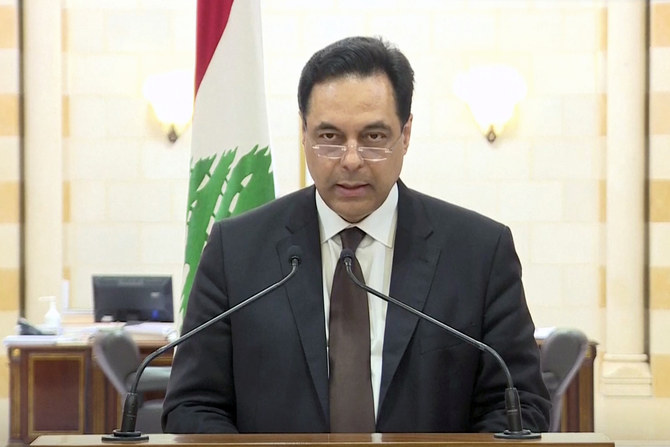Crackdown on Turkey’s pro-Kurdish party raises concerns among opposition
ANKARA: The latest crackdown on Turkey’s pro-Kurdish Peoples’ Democratic Party (HDP) has raised concerns about the government’s underlying motives and the risk posed to opposition parties.
Four members of the HDP — including Sevin Alaca, the co-mayor of the eastern province of Kars — were arrested on Oct. 8 in relation to protests in 2014, bringing the number of recent arrests over the incident to 16.
Those arrested are accused of encouraging anti-government protests in southeastern provinces in October 2014 in reaction to the Daesh siege of Syria’s mainly Kurdish border town of Kobane. Demonstrators allegedly claimed that the Turkish government failed to protect Kobane against Daesh.
Some view the recent arrests as an attempt by Turkey’s ruling Justice and Development Party (AKP) to weaken the HDP, which gained 13 percent of the votes in the last general elections.
Talking to Halk TV on Oct. 7, HDP’s co-chairman Mithat Sancar claimed that the political cost to the government of shutting down the HDP would be too great, but that it is trying to ensure the party cannot function properly.
“The Constitutional Court has been under more and more pressure in recent days and it is being threatened,” he said. “Thus, we would not be surprised by the closure of the HDP. But the government does not want to take this path for now because this would have a political cost and would trigger reactions from both global and domestic spheres. That is why the government can adopt a less costly method by making the party a de facto ineffective one.”
Berk Esen, a political analyst from Sabanci University in Istanbul, told Arab News there are several reasons why the government would not simply close down the HDP, the main one being that it does not want to create a precedent for party bans, which have hurt the Islamist movement in the past. In 2008, the AKP was on trial and threatened with closure, and its leaders have always promised to oppose banning political parties.
Banning a party would likely incur a severe backlash against the Turkish government from the European Union, Esen added. A committee from Sweden’s Left Party, including its chairman, paid a visit to the HDP headquarters in Ankara on Oct. 6 and expressed concerns about the silencing of the HDP, which they considered “a big loss” for the country.
“Keeping the HDP open but severely weakened allows the government to retain the image of a democratic regime in Turkey, even though the political system no longer satisfies even the minimal democratic requirements,” Esen said.
Esen added that the HDP also serves as a rallying point for the alliance of the ruling party and its partner, the far-right Nationalist Movement Party (MHP) and helps to keep ultra-nationalist voters behind President Recep Tayyip Erdogan’s administration.
“Moreover, the government does not need to close down the party to limit its operations. It has already appointed caretaker administrators to most HDP-controlled municipalities and arrested hundreds of party officials, including its former leader,” he said.
In the 2019 local elections, the HDP — Turkey’s third-largest party — won 65 municipalities throughout the country, but only six of its 65 mayors remain in office, with the rest removed under terror-related charges and their positions taken up by government-appointed bureaucrats.
“The HDP has taken a huge hit from the government’s crackdown and faces enormous organizational challenges in the months ahead. At this point, its resistance remains primarily at the ballot box, where its loyal voters continue to support it,” Esen said.
For Sinem Adar, an associate at the Center for Applied Turkey Studies (CATS) in the German Institute for International and Security Affairs, the latest crackdown on the HDP matches a general trend that has been apparent since Turkey’s June 2015 elections: A systematic attack on Kurdish political representation by Erdogan’s party and the MHP.
“This trend has included a variety of methods, such as the removal of parliamentary immunity from Kurdish MPs, their criminalization and systematic exclusion from political processes, and — last but not least — the replacement of elected mayors by government-appointed trustees,” she told Arab News.
“Nationalist factions within the security apparatus became a part of this trend after the failed coup attempt in 2016. In light of the developments in Northern Syria, with Turkish military interventions, the ruling class is determined to suppress Kurdish political representation and participation,” she continued.
There are widespread concerns among other opposition parties, too, that what happened to the HDP might also happen to them.
“We need to stand up against all injustices, regardless of which party, who is experiencing them,” Hasan Subasi, a lawmaker from IYI (Good) Party said on Oct. 6 during a televised speech, adding that a Turkish parliament without the HDP would not represent Turkey and would be “anti-democratic.”
According to Adar, violating the political rights of the members of the HDP is a tactic that the government has been using to drive a wedge between the HDP and the opposition parties, particularly the main opposition party, the Republican People’s Party (CHP). “After all, the March 2019 elections have clearly shown that the Kurds have become king-makers,” she said.
Adar said the crackdown could also be part of the government’s divide-and-conquer tactics when it comes to the CHP itself.
“The CHP is known to include various factions that might not necessarily agree with one another on how the Kurdish question should be addressed. The systematic suppression of the HDP can also be a means to (stoke) existing differences within the CHP,” she said.

Turkish opposition renews attacks on Erdogan for offshore dealingsTurkish opposition hits COVID-19 donation campaign’s lack of transparency





